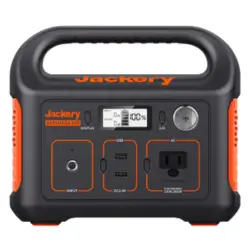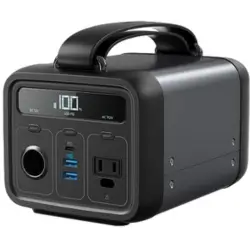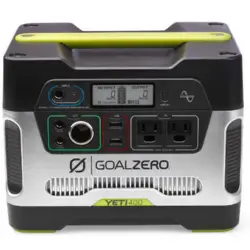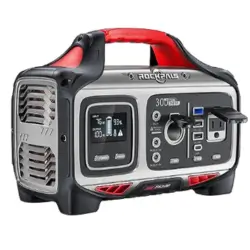Solar Powered Tent Heaters: The Ultimate Guide
Solar powered tent heaters are an excellent solution for keeping warm on cold weather camping trips.
In this comprehensive guide to tent heaters that run on solar power, we’ll cover everything you need to know about using solar power to heat your tent.
Related articles:
How Well Do Solar Tent Heating Systems Work?
Solar tent heating systems use solar panels to collect the sun’s energy during the day and store it in a battery.
The stored electricity can then power a heater at night inside your tent. There are all-in-one units or DIY setups to create solar powered tent heaters.
Solar Tent Heating Benefits
Solar tent heating systems provide a number of advantages over traditional heating options like propane or gas:
- Clean energy source: Solar power generates electricity without any emissions or fossil fuels. It’s better for the environment compared to heaters that burn propane or gasoline.
- Reduce reliance on non-renewables: With solar you don’t have to worry about running out of propane or being able to get refills of heating fuel. The sun’s energy is unlimited!
- Power other devices: Many solar generators can charge or run phones, lights, and other electronics in addition to powering the heater.
- Silent operation: Solar tent heaters run quietly without disturbing noise. Propane and gas heaters can be loud and disruptive inside a tent.
- Cost savings: While the upfront cost is higher, solar powered tent heaters pay for themselves over time since you don’t have to continuously buy propane or other expendable fuels.
Choosing the Right Solar Powered Tent Heater
There are a few key factors to evaluate when selecting the right solar powered tent heater for your camping setup:
- Power output: Consider the wattage and BTUs needed to sufficiently heat the size of your tent. Larger tents or very cold conditions require more heating power.
- Battery capacity:The battery storage determines how long the heater can run before needing to recharge. Larger batteries provide more overnight heating duration.
- Portability: If carrying your heater to campsites, weight and size are important. Look for compact, lightweight models.
- Safety features: Automatic shutoff if tipped over, overheating protection, and tip-over switches are useful safety precautions.
- Budget: Solar heaters have higher upfront costs but save over time on fuel. Determine your budget and look for good value.
Safety Tips for Using Solar Powered Tent Heaters
While very convenient, solar powered tent heaters do require some safety precautions when in use:
- Ensure adequate ventilation: Leave vents open or cracked to avoid carbon monoxide buildup.
- Check for damage: Inspect the unit for leaks, frayed cords, cracked panels or other hazards before each use.
- Position wisely: Place the heater on a flat, level surface in a central area of the tent at least 3 feet from flammable materials.
- Monitor charge level: Keep an eye on the battery indicator so the heater doesn’t run it down too low.
- Store safely: When not in use, keep the heater protected from weather and securely packed away.
Maintaining Your Solar Powered Tent Heater
With proper care and maintenance, a solar tent heater can provide years of reliable service:
- Protect solar panels: Store panels covered and safeguard from impacts that could crack them.
- Battery care: Store batteries partially charged; replace batteries every few years.
- Storage: Clean and dry the unit before storage. Store components in a dry place.
- Manufacturer tips: Follow any specific maintenance directions from the owner’s manual.
- Troubleshooting: Consult troubleshooting guides to diagnose and fix common issues like battery failure or panel damage.
Best Solar Powered Tent Heaters
After months of shivering through camping trips, I decided it was time to invest in a solar powered tent heater.
No more sleepless frozen nights for me! Here are the best solar heaters I compared for my needs:

Jackery Explorer 240
- Pros: Very lightweight, good balance of power and capacity, affordable under $250
- Cons: Lower capacity than larger units, slower solar recharge
- Features: 240Wh capacity, 200W AC outlet, 6.6 lbs, built-in solar panel
- Best For: Solo campers or very small tents wanting a portable solar solution for mini ceramic heaters.

Anker PowerHouse 200
- Pros: Extremely lightweight at 5 lbs, compact, affordable price under $200
- Cons: No included solar panel, lower capacity
- Features: 200Wh capacity, 200W AC outlet, foldable briefcase size
- Best For: Budget-conscious campers for 1-2 person tents.

Goal Zero Yeti 400
- Pros: More power and capacity for larger tents, higher capacity for overnight heating
- Cons: Heavier at 29 lbs, more expensive $400+ price tag
- Features: 296Wh capacity, 400W output, WiFi connectivity, fast recharge
- Best For: Larger tents and colder conditions needing more power.

Rockpals 300W
- Pros: Great mid-range price, includes foldable solar panel
- Cons: Less capacity than premium models
- Features: 300W output, 280Wh capacity, weighs 10.6 lbs
- Best For: High value option for small-medium tent heating needs
| Product | Power Output | Battery Capacity | Weight | Price Range |
|---|---|---|---|---|
| Jackery Explorer 240 | 200W | 240Wh Li-ion | 6.6 lbs | $200-250 |
| Anker PowerHouse 200 | 200W | 200Wh Li-ion | 5 lbs | Under $200 |
| Goal Zero Yeti 400 | 400W | 296Wh Li-ion | 29 lbs | $400+ |
| Rockpals 300W | 300W | 280Wh Li-ion | 10.6 lbs | $300-350 |
You may also like: Best Tent Heaters for Cold Weather Camping
Creating a DIY Solar Heater For Camping
For a more affordable do-it-yourself approach, you can build your own solar tent heating system using:
- Solar panel kit: Contains panel, charge controller to prevent overcharging battery, wiring.
- Deep cycle battery: More durable and withstand repeated discharges. 100Ah capacity recommended.
- Portable heater: Small electric ceramic or radiant tent heater, usually 500-1500W.
- Components: Fuses, switches, inverter if AC heater, conduit for wiring.
- Considerations: Ensure components are properly sized. Follow electrical safety codes.
While more complex, a DIY solar heater can be customized and cost effective.
Solar Heater Accessories
Add-ons can increase the effectiveness of your solar tent heater:
- Reflectors: Reflective panels around heater focus more heat inward.
- Thermostat: Maintain optimal temp and turn off when warm enough.
- Battery packs: Extra batteries extend heating duration.
- Heated blankets: Add additional directed warmth on beds.
- Lighting: Solar string lights provide ambient lighting.
Limitations of Solar Powered Tent Heaters
While solar tent heaters provide a clean and quiet heating solution, there are some limitations to note:
- Solar reliability depends on weather conditions
- Solar panels work best on sunny days. Overcast or stormy weather reduces energy generation.
- Solar heaters may not be as effective in locations/seasons with fewer sunny days.
- Batteries can drain faster than expected
- Colder temps may cause batteries to drain faster than estimated.
- Running multiple devices from the solar generator also drains batteries quicker.
- Limited heat output
- Solar heaters work well for small-medium tents but may not provide enough power for very large shelters or extreme cold.
- Higher upfront costs
- Solar equipment has higher initial costs than propane or gas heaters. Return on investment takes time.
- Positioning challenges
- Solar panels need to be kept outside and positioned properly to absorb maximum sunlight.
Being aware of these limitations helps set proper expectations. Solar works very well for milder weather camping but supplements may be needed in extreme cold or unfavorable solar conditions.
Read also: How to Stay Safe in Extreme Weather While Camping?
FAQs
With a large enough power output, yes. Models over 1000W can provide ample warmth.
Battery life depends on capacity and conditions. With regular recharging, some last up to 8 hours.
Fully recharge through solar each day if possible. Can also plug into car outlet or AC power when available.
Entry-level models start around $200. More powerful units range from $300 to $800+. DIY projects can cost less.
Conclusion
Solar powered tent heaters provide clean, silent warmth for cold weather camping. This guide covers solar heating benefits, choosing systems, safe usage, top products, accessories, and DIY options. Investing in solar opens up new cold weather camping possibilities.
Now that you’ve learned all about solar powered tent heaters, it’s time to start planning your cold weather camping trips! Browse the top products and systems in this guide, and choose the best solar powered heating solution for your needs. Order your solar tent heater today so you can stay warm and cozy all camping season long.
With your new solar powered tent heater, you’ll be ready to take on cold temps and extend your camping season. Imagine waking up warm and refreshed, instead of shivering through another freezing night. The possibilities are endless with solar tent heat.
Don’t let cold weather stop you from camping anymore. Get yourself a solar powered tent heater and enjoy comfy, emission-free warmth even when temperatures drop. You’ll be so glad you did!